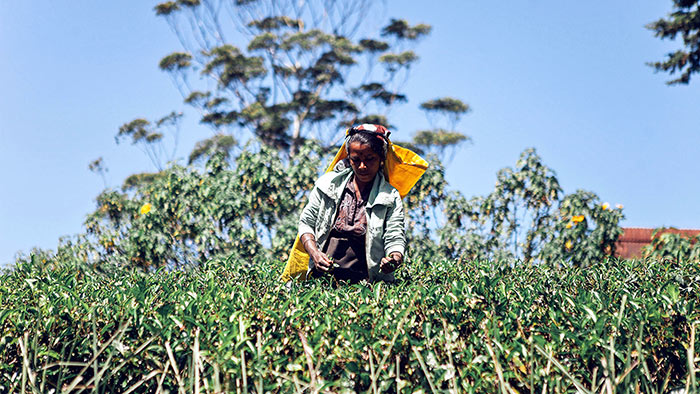Sri Lanka to settle $251 million oil import dues to Iran by bartering tea

(Photo: Pexels)
Sri Lanka plans to settle $251 million in oil import dues owed to Iran by bartering tea, a Sri Lankan minister said on Wednesday, amid dwindling foreign reserves.
Plantations Minister Ramesh Pathirana told Reuters he aimed to start sending tea to Iran from January. “We hope to send $5 million worth of tea each month to repay Iran for oil purchases pending since the last four years,” he said.
Sri Lanka has to meet about $4.5 billion in debt repayments next year, starting with a $500 million international sovereign bond in January, but the country’s foreign reserves had dwindled to $1.6 bln at the end of November, latest data from the central bank showed.
Central Bank Governor Ajith Nivard Cabraal said earlier this month Sri Lanka is confident of being able to “seamlessly” repay all sovereign debt that comes due in 2022.
But Fitch Ratings this month downgraded Sri Lanka’s sovereign rating to “CC” from “CCC”, citing a growing risk of debt default in 2022, despite repeated assurances from the central bank.
Sri Lanka has foreign currency debt service payments of $6.9 billion in 2022, equivalent to nearly 430% of official gross international reserves as of November 2021, Fitch said in a statement.
A senior member of the country’s tea board said it was the first time it had been able to use tea supplies for a barter arrangement to settle foreign debt.
The Plantation Ministry said in a statement this barter with Iran “will not violate any UN or U.S. sanctions since tea has been categorized as a food item under humanitarian grounds while none of the blacklisted Iranian banks will be involved in the equation.”
“The recommended scheme will save Sri Lanka much-needed foreign currency since the settlement to Iran would be made in Sri Lankan rupees through the sale of Ceylon Tea,” it added.
Sri Lanka produces about 340 million kilogrammes of tea annually. Last year it exported 265.5 million kg of tea, making it the largest forex-earning crop, with earnings of $1.24 billion in 2020.
A spokesperson for the Planters Association, which includes all the major plantation companies in Sri Lanka, said this mode of transaction was a “(sticking) plaster solution by the government”.
“It doesn’t necessarily benefit exporters as we will be paid in rupees, circumventing the free market, and provides no real value to us,” said Roshan Rajadurai.
(Reuters)
Latest Headlines in Sri Lanka
- Sri Lanka declares essential services to ensure recovery after Cyclone Ditwah January 31, 2026
- Sri Lanka disburses Rs. 50,000 relief to 70% of Cyclone Ditwah victims January 31, 2026
- Sri Lanka to launch national review on social media’s impact on children January 30, 2026
- Sri Lanka, Saudi Arabia move to boost industrial cooperation January 30, 2026
- Johnston Fernando, two sons and others further remanded until February 13, 2026 January 30, 2026


